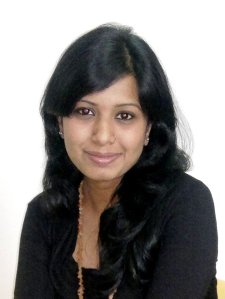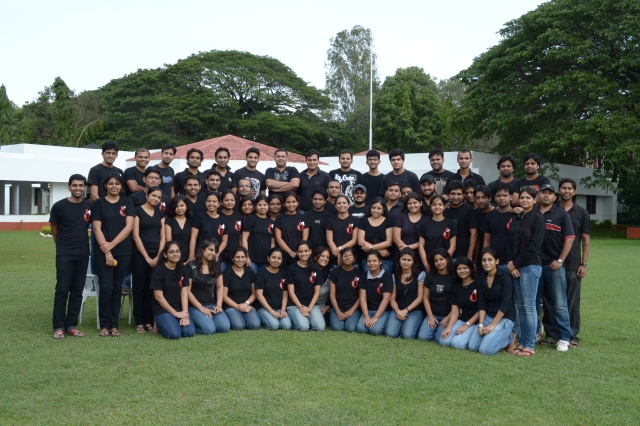 Saurav Ghosh is a testament to the fact that at Kirloskar Institute of Advanced Management Studies, they don’t try and fit square pegs in round holes. Saurav was – and still is – a hard-core Operations man… and is loving it!
Saurav Ghosh is a testament to the fact that at Kirloskar Institute of Advanced Management Studies, they don’t try and fit square pegs in round holes. Saurav was – and still is – a hard-core Operations man… and is loving it!
“As a Textile Engineer from Bengal, I worked for 3 years for the Bhilwara group, at their Indore Plant before getting through KIAMS. Infact it was in my second attempt that I got through.”
A B-5 passout, Saurav received an on-campus placement at the Kirloskar Institute of Advanced Management Studies, with Jindal Steel Works (JSW), in the year 2004. Believe it or not, in this age of fly-by-night operators, he has never shifted 0rganisations for the last 8 years, and has chosen to grow with JSW.
“It’s been an excellent journey. I’ve been with JSW since I passed out of KIAMS in 2004. Despite many opportunities, I haven’t shifted… simply because I love my job. Any MBA aspirant should choose their Business school not just of its placement profile, but also on how well it prepares you for life. That is very important. A B-school like KIAMS equips you with skills for life. KIAMS might not be ranked among the top 10 B-schools in the country because nobody measures a B-school on this parameter. The process, through which the students at KIAMS are grinded, is far better than the most of the Top B- schools.”
In Mumbai with JSW, Saurav’s job is a typical 9-6 business – Procurement, interaction with the suppliers, PPT’s to the Directors, tying up with Finance – not the ideal one for an adrenaline junkie, but perfect for Saurav.
“You see, KIAMS was the turnaround point in my life. As an Engineer, I was working on the Shop Floor, but after an MBA from KIAMS, my profile changed completely and my salary went up manifolds. My MBA was more of general management. My core subjects were Project Management, Supply Chain Management… but there was a bit of Finance as well, while Marketing was bare minimum.”
For Saurav, there were ample clubbing and sporting opportunities at Kirloskar Institute of Advanced Management Studies. But he spent most of his time in the KIAMS library. He squarely blames the faculty for getting him ‘hooked’ onto academics!
“Right at the beginning of the first year, the first subject that was taught was ‘Principles of Management’. GI (Professor G. Iyengar) himself took that Class. It was the first of many classes that GI would conduct. He had this ability to make us think at different levels. GI’s Classes were more about Industry Practices rather than theoretical.”
Saurav points out that in the Kirloskar Institute of Advanced Management Studies, ‘work ex’ might not always be advantageous. “In a job, you pick up wrong practices, and you unknowingly carry this baggage to your B-school.
Secondly, the freshers at KIAMS do much better in terms of marks because we had, kind of, lost the habit of studying, while for the freshers it was just an extension of their education… the mugging- up business! However, the flip-side to it was that, freshers had limited understanding due to lack of experience. A work-ex helps you correlate and appreciate your subjects far better. It matters in the long run.”
Saurav feels, unless you are through-and-through an Operations man, you must stick to Marketing or Finance at the Kirloskar Institute of Advanced Management Studies, because of the plethora of opportunities existing in these fields.
“At the end of the day, what matters is knowledge. Not just knowledge as a part of the academics in KIAMS – that is very important – but a 360-degree perspective of your business, be it Marketing, Finance or Operations. That helps during interviews. I was involved in acquiring a lot of business knowledge, which helped me immensely during campus placement at KIAMS.”
 My years at KIAMS were the first ever away from home. Though it was initially difficult to adjust to a life of independence and responsibility, the years at KIAMS are amongst the most memorable ones in my life.
My years at KIAMS were the first ever away from home. Though it was initially difficult to adjust to a life of independence and responsibility, the years at KIAMS are amongst the most memorable ones in my life.









